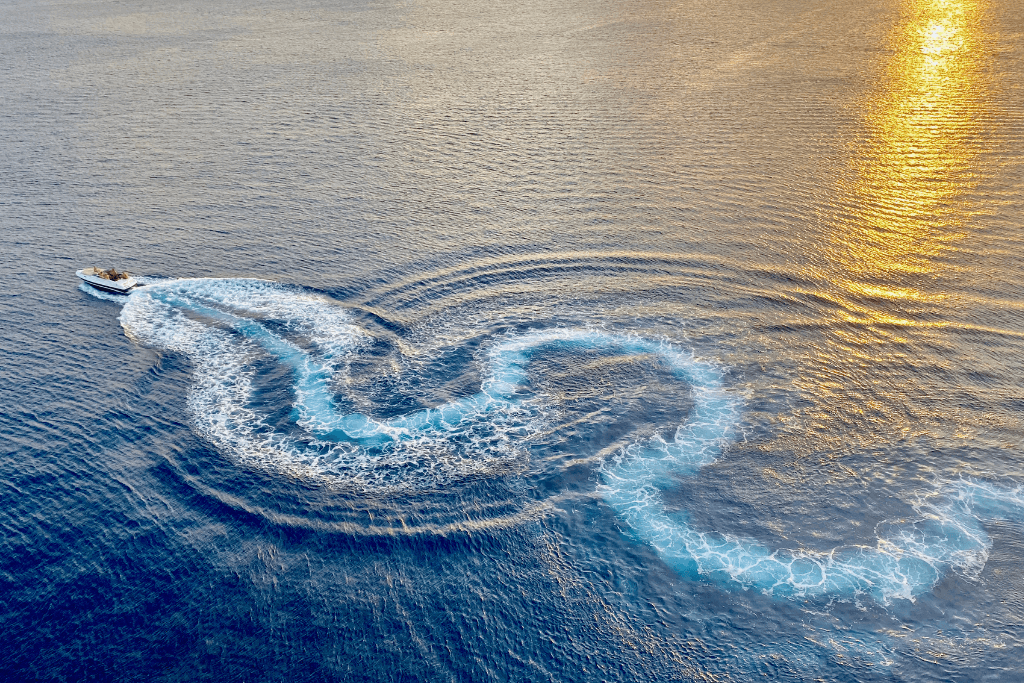Boat tours are a popular holiday activity, but if you were a passenger involved in an accident during a boat trip you might be wondering, “What are my rights after a boat injury?”
I am a travel and cruise lawyer. I have represented boat passengers who have suffered boat injuries on boat tours both within Australia and overseas. In this article I share my expertise to answer this question.
Rights after a boat injury depend on location
As a paying boat tour passenger, the first consideration is where your boat accident occurred.
If you were overseas, your right to bring a negligence claim will depend on the law of the country that you were in. This could be more or less favourable than Australian law depending on the country.
If you were in Australia, your rights will depend on which State of Territory you were in. This is because each State and Territory has its own rules for bringing personal injury claims. Many jurisdictions have specific rules when it comes to recreational activities such as scenic boat tours, and dangerous recreational activities such as thrill seeker adventure boat tours.
Some States such as NSW have harsh rules making claims difficult, although not impossible. Other States like SA treat accidents during recreational activities just like any other accident. There are other States like WA which fall somewhere in between.
Duty of care of Australian boat operators
Under all State and Territory laws, the starting point is that boat tour operators owe their passengers a duty of care.
This generally means that a boat tour operator is negligent if it does not take precautions against a risk of harm to its passengers. The risk must be
- Foreseeable
- Not insignificant, and
- In the circumstances a reasonable person would have taken the precautions
Examples of precautions in boat injury cases
In boat injury cases, examples of precautions that should be taken include:
- Keeping the boat well maintained and in good mechanical working order
- Training the crew appropriately
- Keeping a look out and avoiding other vessels, rogue waves and obstacles
- Keeping the vessel at a safe speed
- Only taking passengers on tours when the weather and water conditions are suitable
- Ensuring the boat is appropriately fitted out for the target customers, for example with non-slip flooring, grab rails and steps where required
- Instructing / briefing and warning passengers of any relevant dangers
Limitations to the duty of care
Whilst the above is the starting point, some Australian States and Territories have Civil Liability Acts which limit the duty of care.
For example, many jurisdictions’ rules state that a tour operator does not owe a duty of care regarding a risk when providing a recreational activity to its customers if it gives a risk warning. Giving the warning is enough. The boat operator does not have to show that the passenger received or understood the warning.
For example, in New South Wales, Tasmania and Western Australia a tour operator does not owe a duty of care regarding a risk when providing a recreational activity to its customers if it gives a risk warning.
Giving the warning is enough. The boat operator does not have to show that the passenger received or understood the warning. However, for a risk warning to be valid, it must be correctly drafted.
Obvious risk of dangerous recreational activities
If a passenger suffers a boat injury on an adrenaline pumping adventure boat tour, as opposed to a gentle sail across a harbour, the law will likely classify it as a dangerous recreational activity.
There are significant hurdles that an injured boat passenger must overcome to obtain compensation from an accident during a boat tour that the law regards as dangerous.
The civil liability regimes of Queensland, New South Wales, Tasmania, and Western Australia include the complete defence that a defendant is not liable for harm suffered by a plaintiff as a result of the materialisation of an obvious risk of a dangerous recreational activity.
In these cases, an expert travel and cruise lawyer can advise the passenger on whether the boat tour was ‘dangerous’ in the eyes of the law and if so, whether the risk was ‘obvious’.
Boat injury waivers
Waivers in boat tour contracts are common. I often come across clauses which state that they limit or exclude the boat tour operator’s liability if something goes wrong.
The Civil Liability Acts of New South Wales and Western Australia allow activity providers to include waivers in their contracts which exclude, restrict or modify their duty of care. As a result, if a waiver forms part of the contract, the tour operator does not owe a contractual duty of care to its customers.
If a waiver forms part of the contract, the result is that the tour operator does not owe a contractual duty of care to its customers. This makes the steps in making the boat tour booking crucial.
For example, if a tour operator asks a passenger to sign a waiver after they have bought their ticket, the waiver will not have been properly incorporated into the terms and conditions. An experienced travel and cruise lawyer can advise on this.
Waivers not always valid
Tour operators cannot rely on waivers in all circumstances.
Generally if the boat accident resulted from contravention of a law that specifies practices or procedures for the protection of personal safety, the tour operator cannot use a waiver to escape liability.
In WA a tour operator cannot rely on a waiver if the harm resulted from a tour operator’s reckless disregard to safety. This is not the case in NSW, where an activity provider can escape liability even when injury to a customer is caused by their reckless disregard to safety.
Rights under the Australian Consumer Law
As a boat passenger on a commercial boat tour (as opposed to a trip on a friend’s boat) the Australian Consumer Law will also apply to your claim.
The Australian Consumer Law covers all companies supplying boat tour services across Australia. Under the Australian Consumer Law, tour operators guarantee that their services will be provided with due care and skill and be reasonably fit for purpose. If they breach these guarantees, injured passengers can claim compensation.
The Australian Consumer Law also applies to conduct outside Australia by companies who carry on business in Australia. This means that if you were injured on a boat tour overseas but there was an Australian connection, for example it was on a shore excursion bought from an Australian cruise line, the Australian Consumer Law still applies.
However, there is a complex interplay between the Australian Consumer Law and each of the State and Territory’s own rules. If a State or Territory’s rules allow for limitation of liability, this is generally also permitted under the Australian Consumer Law.
Some general personal injury lawyers might not come across this interplay very often as it is not relevant in motor vehicle claims or workers compensation claims. However an experienced travel lawyer will be familiar with these complexities.
How the Australian Consumer Law treats waivers
The Australian Consumer Law also allows waivers that exclude statutory guarantees in the supply of recreational services.
However, recreational services has a different definition to recreational activities under State and Territory legislation. Recreational services are sporting activities, or activities that require physical exertion or physical risk. Therefore a boat tour might be a recreational activity but not a recreational service.
When a waiver is allowed, the wording of the waiver is crucial. To be permitted it can exclude or limit liability for death or injury. However it cannot also limit liability damage to property.
Furthermore a waiver cannot limit liability for significant personal injury caused by reckless conduct.
Travel Law Implications
The recreational activity provisions discussed above have geographic limitations which are relevant to travel law claims.
The High Court in Insight Vacations v Young (2011) 243 CLR 149 found that Division 5 of the Civil Liability Act 2002 (NSW) only includes “recreational activities” that take place within the boundaries of the state. This was on the basis that Parliament only intended the places specified in s.5K like ‘beach’ and ‘park’ to be within New South Wales.
Therefore, for recreational activities which take place overseas, even if the applicable law of a contract is that of an Australian jurisdiction such as New South Wales, the recreational activity provisions of the Civil Liability Act will not apply.
As a result, injured consumers are more likely to be compensated for their injuries for activities that occur outside Australia than at home.
However, it is important to note that not all Civil Liability Act preclusions of liability are confined within the jurisdiction.
In particular when it comes to quantum thresholds, the High Court in Moore v Scenic Tours Pty Ltd [2020] HCA 17 found that s.275 of the ACL picked up s.16 Civil Liability Act 2002 (NSW) for loss sustained outside the jurisdiction. Therefore, where New South Wales law is the applicable law, a plaintiff’s injuries must be at least 15% of a most extreme case for damages to be recoverable in an ACL breach of statutory guarantee claim, even when the loss was sustained outside New South Wales.
As you will see, what a passenger’s rights are after a boat injury is a complex question.
A passenger’s rights will depend on their unique circumstances including
- Where the accident happened
- What warnings were given
- How the booking was made, and
- What the terms and conditions of the contract say
As a travel and cruise lawyer, I have represented passengers injured in boat tours both within Australia and overseas. My clients have included those who have booked independently and as a cruise shore excursion. No two cases have been the same. However the common theme has been that my clients have benefited from my expertise in this niche area of law, and my compassionate approach.
As well as being dedicated to representing injured holidaymakers, the issue of dangerous recreational activity provisions restricting compensation rights for the injured is close to my heart. As Secretary of the NSW Branch of the Australian Lawyer Alliance, I have drafted and presented submissions to the Attorney General on changing these unfair provisions. I also gave a presentation on dangerous recreational activities to lawyers at the Australian Lawyers Alliance Annual NSW Conference in March 2022.
If you would like more information on your rights, book a free no obligation chat by clicking here.
This article does not comprise legal advice and neither Victory Travel & Cruise Lawyers nor the author accepts any responsibility for it. For advice on your specific circumstances, book an appointment with a lawyer.


